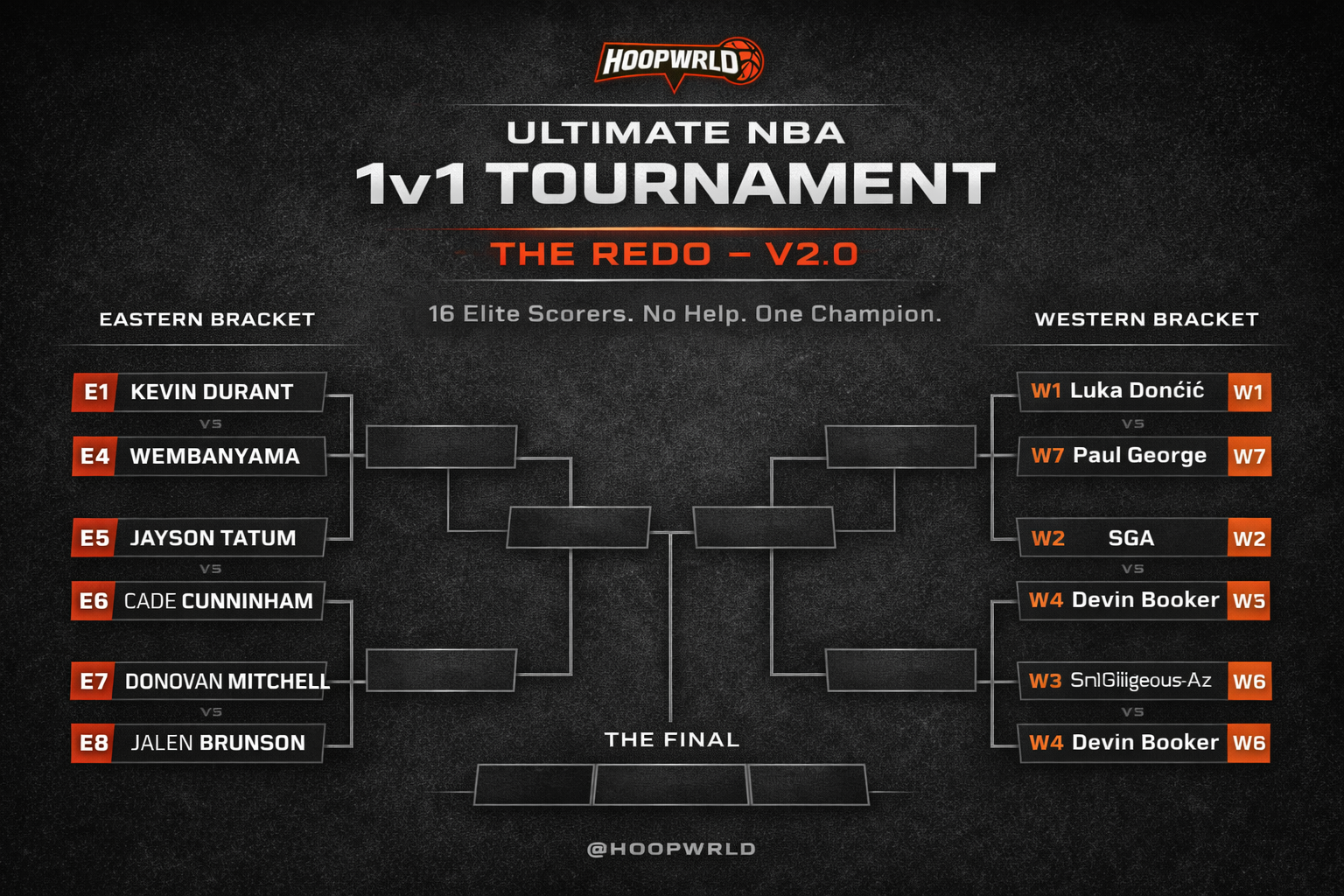As the 2024-25 NBA regular season draws to a close, the debate over individual awards reaches its annual fever pitch. While the basketball community has largely settled on consensus favorites, a deeper dive into the metrics, impact, and context suggests several overlooked candidates deserve serious consideration. Here’s our case for why the conventional wisdom might be missing the mark on this year’s NBA hardware.
MVP: Giannis Antetokounmpo (Milwaukee Bucks)
The MVP race has seemingly narrowed to Oklahoma City’s Shai Gilgeous-Alexander as the frontrunner, but Giannis Antetokounmpo’s season in Milwaukee warrants more consideration than it’s receiving.
While SGA has masterfully orchestrated the Thunder’s rise to Western Conference prominence, Antetokounmpo’s two-way dominance continues to defy conventional basketball physics. Despite sharing the floor with Damian Lillard, Giannis has maintained elite production: 30.1 points, 11.5 rebounds, and 6.3 assists while shooting over 60% from the field. His defensive impact remains transformative, anchoring a Bucks team that has weathered significant injuries to remain in contention.
What separates Antetokounmpo is his unmatched efficiency on both ends of the floor. His Player Efficiency Rating (PER) leads the league once again, and advanced metrics suggest he creates more scoring opportunities for teammates per possession than any player not named Nikola Jokić. While SGA’s scoring exploits and team success make for a compelling narrative, Giannis remains basketball’s most unstoppable two-way force.
Defensive Player of the Year: Jaren Jackson Jr. (Memphis Grizzlies)
The defensive metrics love Evan Mobley and Ivica Zubac has emerged as a legitimate anchor for the Clippers, but Jaren Jackson Jr.’s defensive impact on Memphis transcends the box score.
JJJ’s versatility as both an elite rim protector and perimeter defender makes him uniquely valuable in today’s NBA. His 2.9 blocks per game only tell part of the story – opponents shoot 8.7% worse at the rim when Jackson contests, and his ability to switch onto guards in pick-and-roll situations gives Memphis defensive flexibility few teams possess.
What makes Jackson’s case particularly compelling is context: after losing Ja Morant for significant stretches, the Grizzlies’ playoff push has been fueled almost entirely by their defensive identity with Jackson as the cornerstone. His defensive versatility has allowed Memphis to deploy multiple schemes, keeping them competitive despite offensive limitations.
Note: If eligible, Victor Wembanyama would be the runaway choice here. His defensive metrics as a rookie – 3.6 blocks, 1.3 steals, and forcing opponents to shoot a league-worst 39.7% when he contests – are unprecedented in the modern era.
Coach of the Year: Ime Udoka (Houston Rockets)
The coaching transformation in Houston under Ime Udoka represents perhaps the most dramatic year-over-year improvement in the NBA. Taking a Rockets team that won just 22 games last season and transforming them into a playoff contender required not just talent development but a complete cultural overhaul.
Udoka’s defensive principles have turned one of the league’s worst defensive units into a top-10 outfit, while simultaneously unlocking Alperen Şengün’s offensive potential and accelerating Jalen Green’s development into a more efficient scorer. The team’s ball movement, defensive intensity, and late-game execution all bear Udoka’s fingerprints.
While Kenny Atkinson deserves credit for Cleveland’s Eastern Conference surge, he inherited a roster featuring multiple All-Stars. Bernie Bickerstaff’s work with Detroit’s young core shows promise, but Udoka’s immediate transformation of a directionless franchise into a team with clear identity and purpose represents the coaching achievement of the year.
Rookie of the Year: Stephon Castle (San Antonio Spurs)
In a rookie class overshadowed by Victor Wembanyama’s historic freshman campaign last year, Stephon Castle has quietly established himself as the most complete first-year player. While Zaccharie Risacher entered with higher expectations as the top overall pick, Castle’s immediate impact in San Antonio has been more substantial.
Castle’s 14.8 points, 5.2 rebounds and 4.7 assists while shooting 37% from three-point range demonstrates remarkable polish for a rookie guard. More impressively, his defensive awareness and positional versatility have earned him significant responsibilities in Gregg Popovich’s system – a rarity for any first-year player.
What separates Castle is his two-way contribution and clutch performance. His defensive rating ranks first among all rookie guards, and he’s shown remarkable poise in late-game situations. While Risacher shows tremendous long-term potential, Castle’s immediate impact makes him this season’s top rookie performer.
Most Improved Player: Austin Reaves (Los Angeles Lakers)
Austin Reaves’ evolution from undrafted role player to essential component of the Lakers’ success represents the spirit of this award. While Ivica Zubac has made tremendous strides for the Clippers, Reaves’ development into a reliable third option alongside LeBron James and Anthony Davis has transformed the Lakers’ ceiling.
Reaves has increased his scoring output to 18.6 points per game while improving his three-point percentage to 39.5% on high volume. More significantly, his playmaking responsibilities have expanded dramatically, averaging 5.9 assists while maintaining a positive assist-to-turnover ratio.
The statistical leap is impressive, but Reaves’ greatest improvement comes in moments when the Lakers need him most. His fourth-quarter scoring average has nearly doubled from last season, and the Lakers’ net rating with Reaves on the floor without LeBron has swung from negative to positive – perhaps the most telling indicator of his growth into a legitimate cornerstone rather than a complementary piece.
Sixth Man of the Year: Payton Pritchard (Boston Celtics)
Boston’s pursuit of back-to-back championships has been fueled in part by their remarkable depth, with Payton Pritchard emerging as perhaps the league’s most valuable bench weapon. His scoring punch (13.2 points in just 22.7 minutes) on elite efficiency (44.8% from three on high volume) provides Boston with offensive firepower that few second units can match.
What makes Pritchard’s case compelling is his performance in high-leverage situations. When Boston’s offense stagnates or needs a spark, his ability to create his own shot and space the floor has repeatedly broken open tight games. His net rating of +8.3 points per 100 possessions off the bench leads all reserve guards with significant minutes.
While Malik Beasley has provided valuable scoring for Detroit’s rebuilding effort, Pritchard’s impact on a championship contender – often in crucial moments – represents the highest expression of the sixth man role.
Clutch Player of the Year: Nikola Jokić (Denver Nuggets)
The numbers for Nikola Jokić in clutch situations (defined as games within five points in the final five minutes) are simply staggering: 61.8% field goal percentage, a 5:1 assist-to-turnover ratio, and a team offensive rating of 123.7 when he’s on the floor – all while facing constant double-teams.
What separates Jokić from other clutch performers is the variety of ways he can dismantle a defense. His passing vision creates open looks for teammates when defenses collapse, his footwork in the post generates high-percentage shots against single coverage, and his improved three-point range punishes opponents who sag off.
While Trae Young has had remarkable late-game moments for Atlanta, hitting several game-winners, Jokić’s consistent excellence in pressure situations makes him the clear choice. Denver’s clutch-time net rating drops by an astounding 23.7 points when he sits, the largest such differential for any player in the league – concrete evidence that no player is more essential to their team’s ability to close games.
Honorable Mentions: Season Standouts
Several players deserve recognition for exceptional seasons even without hardware:
LeBron James continuing to defy time at age 40, averaging 24.8 points, 7.3 rebounds and 8.1 assists while shooting a career-best 41% from three-point range, remains one of the sport’s most remarkable stories.
Anthony Edwards has evolved into one of the league’s premier three-point threats, connecting on 43.2% of his attempts while still maintaining his explosive athleticism and defensive intensity.
Stephen Curry continues to warp defensive schemes with his gravitational pull, leading the league in off-ball movement and creating offensive advantages even when the ball isn’t in his hands.
Jayson Tatum’s evolution as a leader has powered Boston’s push for consecutive championships, with his defensive commitment and improved playmaking complementing his scoring prowess.
As the playoffs approach, these performers have positioned themselves for basketball’s ultimate prize – one that will likely matter more to them than any individual accolade could.




